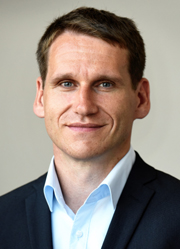Digital Twin Engineering
- Typ: Lecture (V)
- Zielgruppe: Master ETIT or Mechatronic
- Lehrstuhl: IRS-VSA
- Semester: WS 25/26
-
Zeit/Ort:
Wednesday, 15:45 - 17:15, weekly, 30.34 Lichttechnik
- Beginn: 29.10.2025
- Dozent:
- Assistent:
- SWS: 2
- ECTS: 4
- LVNr.: 2301486
- Hinweis: On-Site
Links
| Language of instruction | English |
Overview
|
Recommendations |
Enjoyment and interest in simulation in general. The basic handling of programming languages should not be a hurdle. Enjoyment in the implementation of physical equations with parameters, variables and constants. Enjoyment of digitization and virtual engineering in particular. |
| Target Audience |
Elective Module in
B) Master "Mechatronik und Informationstechnik" as a specialization in
|
|
Teaching Content |
|



